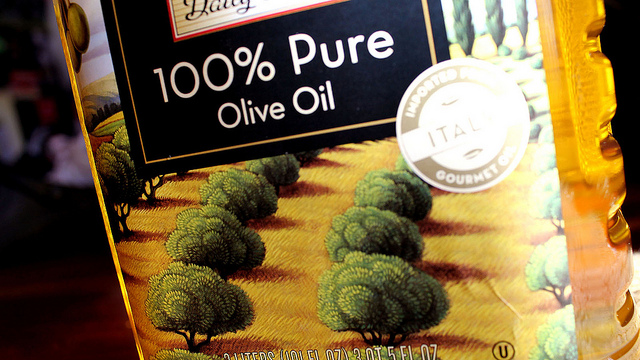Many of us still use vegetable oils because we’ve become convinced they are safe and a heart-healthy alternative over traditional saturated fats.
Found at our typical grocery store, these clear, tasteless, highly refined and processed oils include corn, soybean, canola, safflower, and sunflower oils.
We were told that traditional fats like butter, lard, and coconut oil caused high cholesterol and clogged arteries, leading to heart disease. Instead, experts advised us to avoid saturated fat and eat more polyunsaturated fatty acids (PUFAs), especially omega-6 fats.
Turns out, those authorities who recommended vegetable oils were completely wrong.
A few even admitted it. In a 2010 review at Tufts University, Dr. Dariush Mozafarrian argued we should cut out saturated fats and increase our intake of PUFAs.
However, in 2014 the very same scientist reviewed all of the literature again. This meta-analysis, which reviewed 72 studies, found no benefit to reducing saturated fats or increasing PUFAs except for omega-3 fats.
If so-called experts can’t even agree and change their perspective every few years, what are the rest of us to do?
Vegetable oils being better than saturated fats like butter and lard comes from the idea that they lower total and LDL cholesterol, so they presumably reduce our overall risk of heart disease.
Yet if we look at human history, we consumed much more omega-3 fats and much less omega-6 fats, since wild foods are very rich in omega-3 fats.
The main source of omega-3s today is fish, yet wild game and wild plants, which are very high in omega-3s, used to be a much bigger part of our diet.
Wild meat and grass-fed beef have way more omega-3 fats, while industrially raised animals have almost none. Virtually all of the beef and animal products our great grandparents ate were pasture-raised, organic, grass-fed, with no hormones or antibiotics. That was simply just what they ate.
Introducing refined oils into our diet and moving away from grass-fed and wild animals to industrial animal production increased our omega-6 fat intake. Corn, soy, cottonseed, and canola oils skyrocketed, while omega-3 fats have dramatically declined. In that surge, many Americans sadly became deficient in these essential omega-3 fats.
Omega-6 fats fuel our body’s inflammatory pathways and reduce availability of anti-inflammatory omega-3 fats in our tissues, creating more inflammation.
In other words, omega-6 fats undo any benefit eating omega-3s would normally give us. They also prevent conversion of plant-based omega 3 fats (called alpha-linolenic acid, or ALA) into the active forms of omega-3s called EPA and DHA by about 40 percent.
Too many omega-6 fats also increase the likelihood of inflammatory diseases and link to mental illness, suicide, and homicide. Studies show mental illness connections with inflammation in the brain.
Dr. Joseph Hidlan at the National Institute of health argues over-consuming omega-6 fats and under-consuming omega-3 fats significantly increases a vast number of problems, including diabetes, obesity, and other inflammatory conditions.
Simply put, a diet high in omega-6 fats is not ideal for optimal health. We can’t blame ourselves for this catastrophe. Most of us were taught this at a young age, yet unfortunately the results are the worst epidemic of chronic disease in history with global explosions of heart disease, Type 2 diabetes and obesity (or what I call diabesity), and cancer.
To protect our heart and brain and reduce inflammation, we instead want to choose traditional fats like:
- Extra-virgin, cold-pressed, organic coconut oil (My personal favorite, as it is excellent cell fuel, is highly anti-inflammatory, and may help with improving our cholesterol)
- Extra-virgin, cold-pressed, organic olive oil
- Avocados
- Grass-fed meats
- Grass-fed butter
- Nuts—walnuts, almonds, pecans, macadamia nuts, but not peanuts
- Fatty fish, including sardines, mackerel, herring, and wild salmon that are rich in omega-3 fats
My new book, Eat Fat, Get Thin, uproots the lies we’ve been told about oils and fats, defining which foods cause disease and illness. I’ve created a plan that helps achieve optimal health while vindicating foods demonized that do belong in our diet.
Has your perception of fat changed since learning about what fats are healthy and what fats you should avoid? Share your story below or on my Facebook page.
Relephant:
~
Mindful Offering:
Digestive System Cleanse: Removing toxic build-up for a Healthy Digestive System.
Author: Dr. Mark Hyman
Editor: Emily Bartran
 Share on bsky
Share on bsky






Read 1 comment and reply